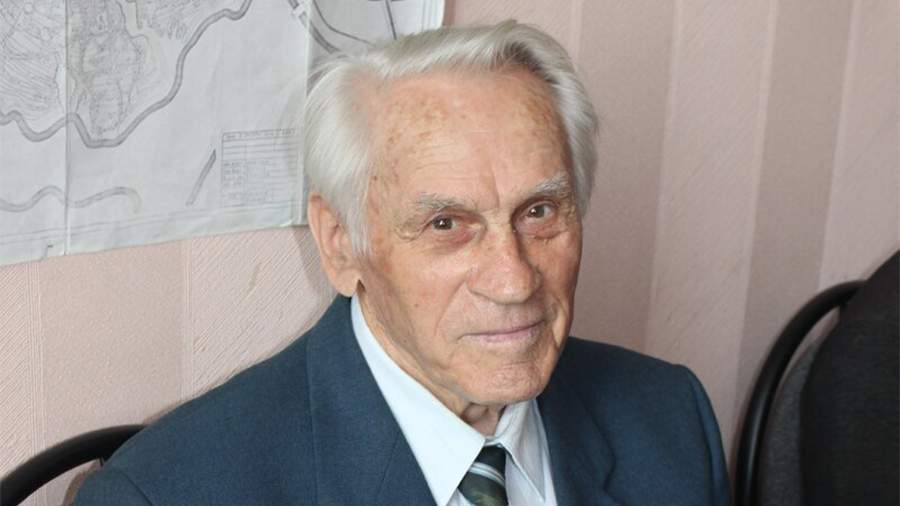Survivors of the occupation of the Kursk region during the Second World War spoke about the atrocities of the Nazis
- Новости
- Local news
- Survivors of the occupation of the Kursk region during the Second World War spoke about the atrocities of the Nazis

On April 28, veterans of the Great Patriotic War (WWII) from the Kursk region told Izvestia about the horrors of the German occupation. Video interviews with those who saw the crimes of the Nazis with their own eyes are posted in the "Living History" section of the Izvestia "Great Victory" virtual museum.
Nikolai Dmitrievich Remezov was only six years old in 1941. In autumn, the Germans came to Orel, where the boy lived with his family. My father managed to leave with the Red Army units and later fought at the front himself. The mother and children fled to the village to live with their grandmother, where they lived during the occupation.
"The Germans went house to house looking for Communists. Everyone was treated ruthlessly. I saw the chairman of the village council being led down the street, without an arm, he lost it during the Civil War. The Germans shot him. And many other men were shot," he says.
The children of the executed villagers actively retaliated against the invaders by setting fire to cars, diluting gasoline and putting up leaflets. Nikolai Dmitrievich also helped his friends, warning them about the approach of the Germans.
At the end of June 1943, the Remezovs and other villagers were sent to a labor camp in Latvia. There they worked in agricultural jobs, receiving very meager food. As the veteran recalls, his mother had to exchange jewelry for food from local residents in order to feed the children. Periodically, the Nazis took blood from the children for wounded soldiers.
When the Red Army began liberating Latvia in the fall of 1944, the Germans forced the prisoners to dig trenches and intended to use them as human shields. However, in the end, the fascists left — the Soviet soldiers saved the people. Nikolai Dmitrievich returned to his native village, where at the age of nine he was finally able to go to school.
Victor Grigorievich Shatokhin, a resident of Kursk, met the beginning of the war at the age of 11. The boy's father and older brother were mobilized, and he, along with his mother and two sisters, were facing occupation.
As the veteran recalls, at first the invaders even allowed children to go to school. However, Viktor was expelled from there after he went to study with unpainted portraits of Soviet leaders and writers in his textbook.
In the winter of 1941, local teenagers met a partisan who began to give them intelligence assignments. Subsequently, the Shatokhin family was almost shot at the denunciation of the wife of the headman, the head of the civilian occupation authorities, who reported the alleged return of his father, a Red Army soldier. The Germans searched the whole house, stole the cattle, and took all the supplies. One of the policemen threatened Viktor's mother with a carbine, but the boy knocked the weapon out of his hand.
"I thought they were going to shoot us now. But nothing happened. One German even laughed. And the next day we went to the headman. Mom says: "You've taken everything, what should I feed the children?" And he gave her half a bag of flour, but he took the rest for himself anyway," the veteran said.
The Red Army liberated Viktor Grigorievich's village in 1943. My father returned from the front two years later, and my older brother died.
Viktor Shatokhin dreamed of becoming a pilot, and this dream almost came true: he entered a military school and became a commander of firing installations on board military aircraft. For many years in a row in the 1950s, his planes flew over Red Square during holiday parades.
Anna Vasilyevna Belkina from Lgov lived in a large family with seven children. The Germans who came to her village first gathered the 15-17-year-olds to be hijacked to Germany, among them was Anna's older brother.
Later, the Belkins were sent to the west with their whole family in a freight car under incessant bombardment. However, the train did not reach Germany — the people were brought near Gomel and left to fend for themselves in empty houses. Two children died in a starving family, and one day a mother and grandmother disappeared while looking for food.
"We screamed and screamed, and then we stopped. Two or three days later, they returned and said that the Germans had caught them, put them in a basement and tortured them. They thought they were partisans," said Anna Vasilyevna.
The Belkins were able to return to their destroyed native village after the defeat of the Germans on the Kursk Bulge in the summer of 1943. Anna Vasilyevna recalls that the fields in that area were strewn with the bodies of fallen soldiers. Even she herself had to help the adults clean up the corpses.
Until the end of the war, Anna's family lived in a former partisan dugout, and later built themselves a hut out of sleepers. My father, who returned from the front, has already built a full-fledged house.
"How many guys have returned home to their families. It means that happiness and goodness have returned. And the Victory gave us all this happiness and kindness," said Anna Vasilyevna.
Earlier, on April 13, WWII veteran Anatoly Parubin told Izvestia about the capture of Vienna by the Red Army in 1945. According to him, the Germans blew up almost all the bridges across the Danube in the city, but the Soviet soldiers managed to clear the last remaining crossing.
Переведено сервисом «Яндекс Переводчик»

